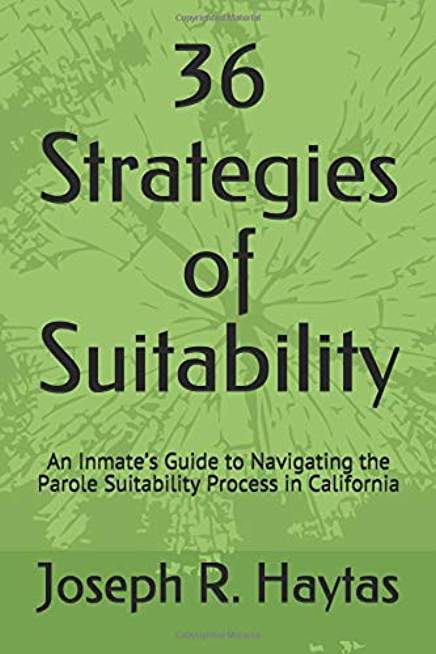WELCOME
If you’ve been searching and have to come to this site, first of all welcome.
I don’t know you but as an Attorney who has been representing lifer inmates since 2009 I want to use my experience and expertise to assist you or your loved one to obtain a finding of suitability. I already know that whoever you are that you or your loved ones believe you have been down for too long and seek the freedom to be with family, loved ones and to live and breathe again the air of a free society.
To be found suitable you must find all the keys to unlock many smaller locks to get to the big lock at the gate and finally return to the free world. I use this analogy because each element to being found suitable whether it be programming, vocation, education, discipline, psychological evaluation, remorse and insight are merely smaller locks to unlocking the big lock producing an ultimate finding of suitability. Each smaller lock must first be unlocked. It’s a big task but if you take each task and break it down into its smaller components it is doable but only if you have the desire and make the commitment to make it a reality.
REPRESENTATION
To be sure being an Attorney means knowing the law. But as an attorney for a lifer inmate it means much more. It means being a good listener, establishing credibility with the BPH hearing panel, being honest and trustworthy. It means putting myself in your shoes [to the greatest extent possible] and treating you like I would want to be treated. It means showing compassion where appropriate and also showing tough love when proper. Attorneys are also called “counselors” for a reason. My goal is to be an attorney, counselor and mentor during this very difficult and trying period.
I provide several levels of representation. Ideally, if the initial hearing and minimal eligible parole date is several years into the future it is the best time to retain my services. It is at this time that a “c-file” review can be performed and the inmate can be counseled to best prepare for the initial hearing. This far in advance allows me to serve as a “mentor” of sorts to check in and advise the inmate from time to time to make sure that the correct path is being followed. Rarely is a finding of suitability made at an initial hearing. It has happened but only for those who have fulfilled the requirements and expectations of the Board of Prison Hearings.
In the event that an inmate has a subsequent hearing [suitability hearings that take place after the initial suitability hearing] approaching in one year to six months a “c-file” review and several visits will be made to counsel and assist the inmate in preparation of the hearing. Here, the inmate will be advised on the strengths and weaknesses of their chances for suitability, advised on the all important decision of to speak or not to speak on the commitment offense, anticipation of the questions to be asked, parole plans review, discussions regarding “insight” and “remorse” and much more.
Next, if an inmate wishes a “c-file” review including one interview for counsel and advice, I am available as well.
SUITABILITY HEARING
The suitability hearing is discussed in more detail in the "overview" section of this website. Suffice it to say here that in very general terms a suitability hearing is not intended to re-try the case as it has already been tried [or plead] in Criminal Court. To be sure the facts of the case are put on the record in the suitability hearing. The panel will invite the inmate to speak about the case. The inmate may either choose to speak or not to speak and that decision under the law cannot be used against the inmate as to the decision of suitability. In reality, a finding of suitability is rarely granted unless an inmate takes full responsibility, shows sufficient insight into the events leading up to the offense and demonstrates sincere remorse for the victim[s]. This cannot be accomplished without speaking about the offense.
The suitability hearing in very broad terms consists of a review of the inmate’s social history or relevant detail occurring before prison; everything that the inmate has been doing since arriving in prison and future parole plans after release. The inmate’s attorney should ask the inmate follow-up clarifying questions to the BPH’S questions. The inmate’s attorney should present a closing statement putting the inmate in the most favorable light possible as to the reasons why a finding of suitability should be found. The inmate may but is not required to give a closing statement. It is suggested that the inmate focus a closing statement narrowly on the issues of remorse for the victim and insight into the factors of what caused the inmate to commit the offense and how the inmate thinks and acts differently, today.
A representative of the district attorney’s office of the County of the commitment offense is usually present either in person, telephonically or by video conferencing. This person almost always opposes parole. It is important that the inmate’s attorney gives a rebuttal to the representative’s closing statement especially where the representative has stated factual inaccuracies regarding the offense.
Last, the victim’s next of kin may be present and may ask questions of the inmate and may give a statement. The victim’s next of kin are always accompanied by a representative of the victim’s assistance unit. When a victim or victim’s next of kin is present the hearing is always very emotionally charged.
 At the conclusion of the hearing the BPH deliberates and the hearing is resumed when a decision is reached. An inmate may be found suitable for parole. However, in the event that the inmate is found unsuitable for parole the denial period may be 3, 5, 7, 10 or 15 years. These periods of denial are based upon “Marsy’s Law” otherwise known as Proposition 9 passed by the voters of the State of California on November 4, 2008.
At the conclusion of the hearing the BPH deliberates and the hearing is resumed when a decision is reached. An inmate may be found suitable for parole. However, in the event that the inmate is found unsuitable for parole the denial period may be 3, 5, 7, 10 or 15 years. These periods of denial are based upon “Marsy’s Law” otherwise known as Proposition 9 passed by the voters of the State of California on November 4, 2008.
WRIT OF HABEAS CORPUS
 A Writ of Habeas Corpus is filed on behalf of an inmate after a decision of unsuitability is found. The primary function of the writ is not to determine an inmate’s guilt or innocence but only whether an inmate is restrained of his or her liberty in violation of due process based upon the findings of the BPH. What this means is that in light of the totality of the inmate’s record that the BPH should not have found the inmate unsuitable for parole because the BPH failed to provide “some evidence” that the inmate posed a current risk of danger to society. This is a high standard to meet. However, if grounds exist and the inmate wishes to pursue a writ at the State court level this office provides services that includes drafting and filing a Writ of Habeas Corpus on behalf of the inmate.
A Writ of Habeas Corpus is filed on behalf of an inmate after a decision of unsuitability is found. The primary function of the writ is not to determine an inmate’s guilt or innocence but only whether an inmate is restrained of his or her liberty in violation of due process based upon the findings of the BPH. What this means is that in light of the totality of the inmate’s record that the BPH should not have found the inmate unsuitable for parole because the BPH failed to provide “some evidence” that the inmate posed a current risk of danger to society. This is a high standard to meet. However, if grounds exist and the inmate wishes to pursue a writ at the State court level this office provides services that includes drafting and filing a Writ of Habeas Corpus on behalf of the inmate.
In the event that you are interested in any of the above services please feel free to contact my office. Thank you in advance for reviewing this site and considering my services.





